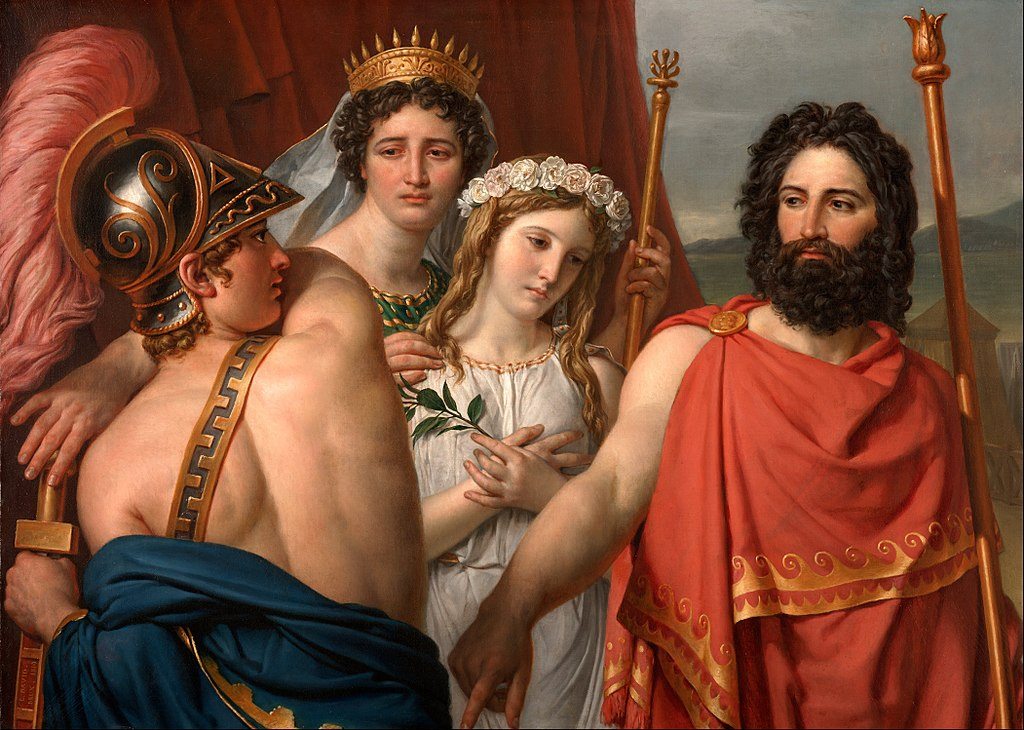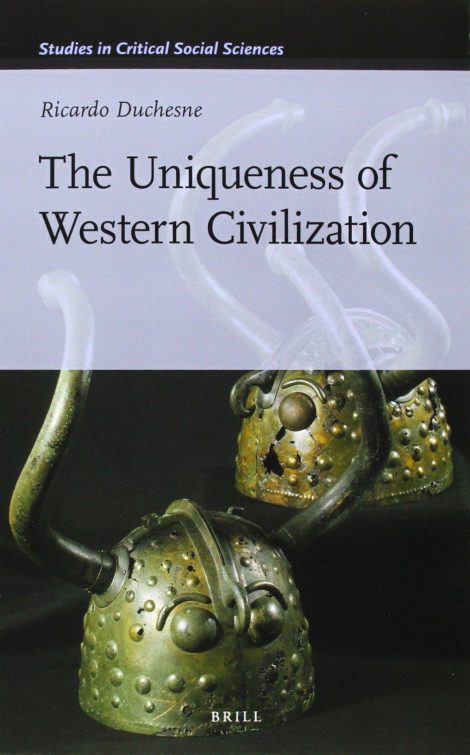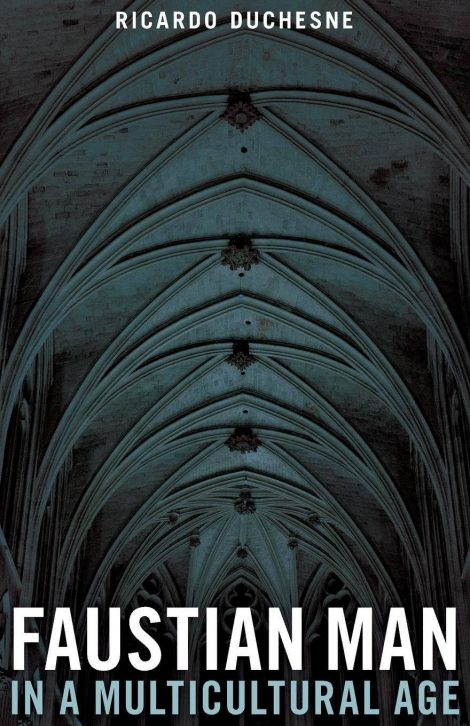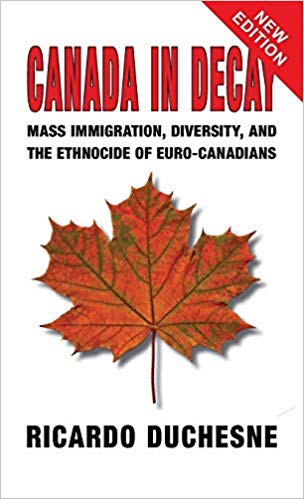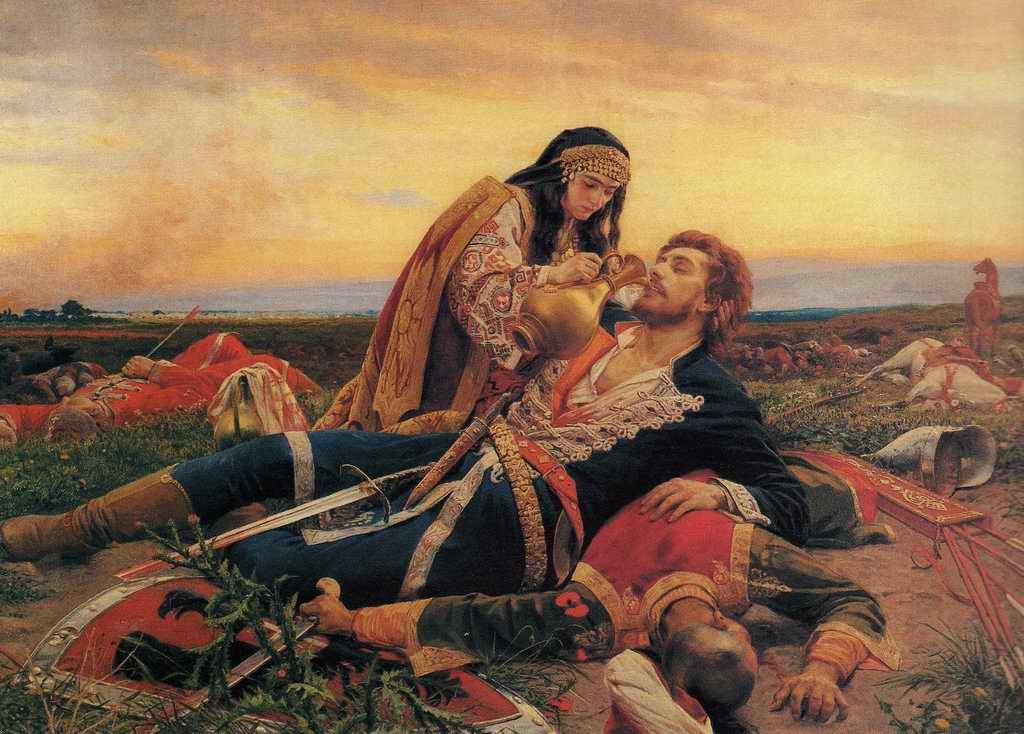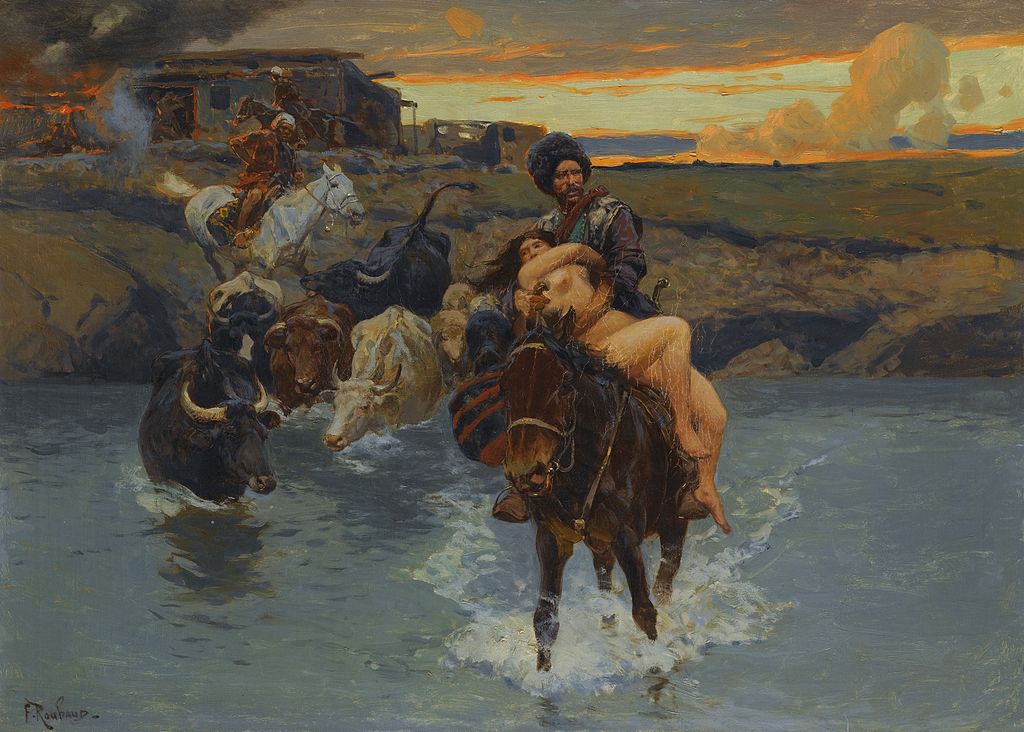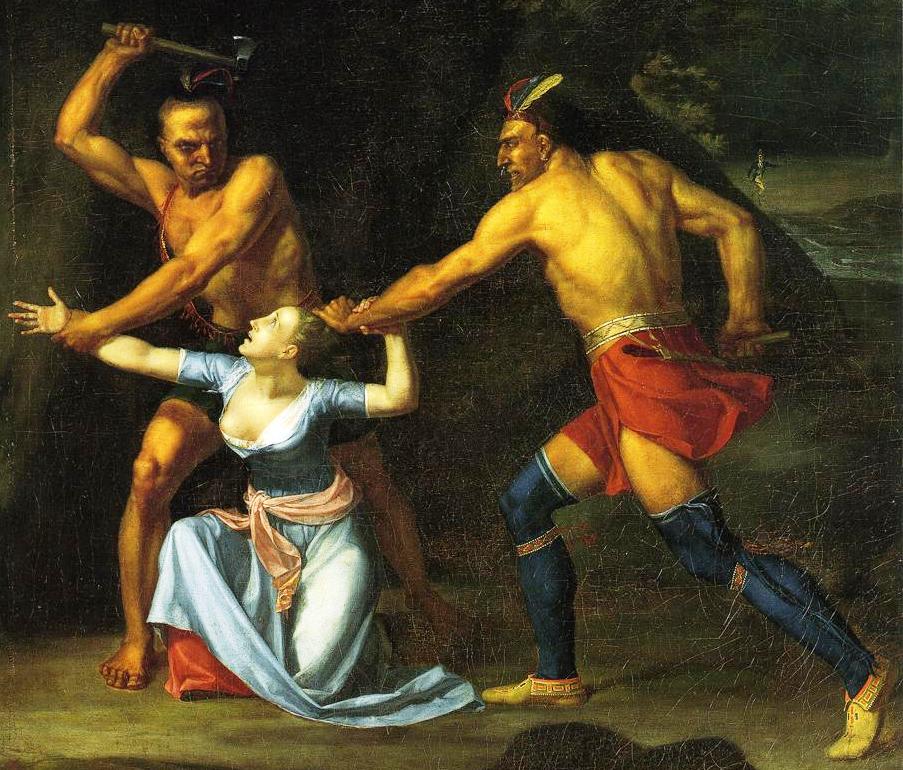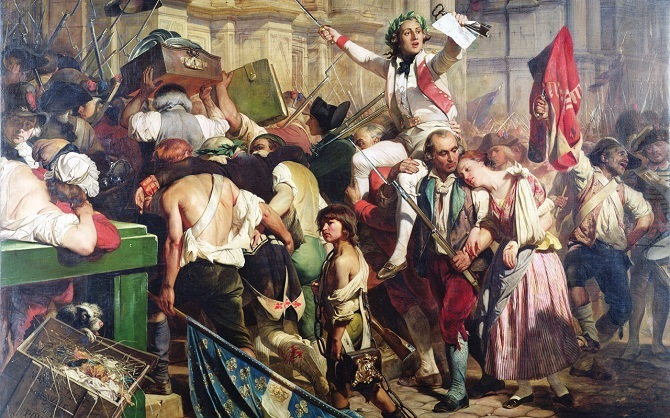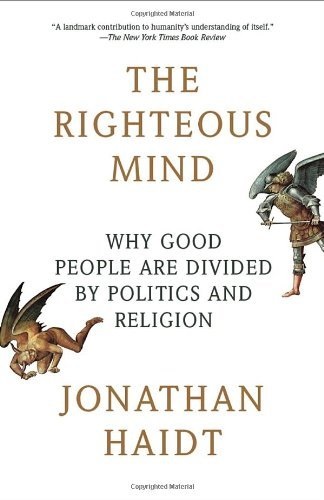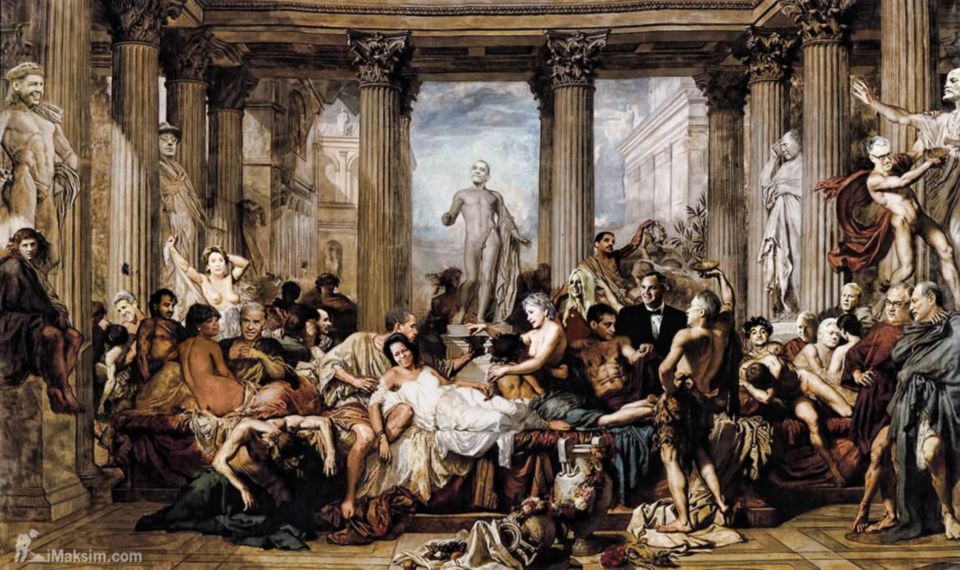This month, we (TP) are pleased to interview Dr. Ricardo Duchesne (RD), a Canadian scholar, who writes about the importance of Western culture and civilization. Dr. Duchesne recently took “early retirement” from his tenured position at the University of New Brunswick so he could enjoy the opportunity to think critically about current politics and the history of Western Civilization, freed from the anti-intellectual and anti-Western atmosphere prevailing in Canadian universities.

TP: Welcome to the Postil, Dr. Duchesne! Could you give us a little background of your experiences as a professor in Canadian academia leading to your decision to take early retirement? You have been burdened with various baseless yet pernicious labels. Do you think this is simply weaponized language to win rhetorical points, or do you think this is a symptom of something graver – the rise of mass conformity in the West, i.e., the death of freedom?
RD: Like almost everyone in academia, I was a leftist throughout my student days and for about 10 years after I began teaching in 1995. My disengagement with the left was not a two-step transition from left to right.
Over the course of many years, I travelled the entire political spectrum from Soviet Marxism and Third World Communism to Western Marxism and New Left politics, from mainstream liberalism and postmodernism to neo-conservatism, and from these establishment views to the realization (around 2012/13) that the supreme political issue of our times was the forced diversification of all Western nations through mass immigration.
Mind you, through these changes in ideology I have remained attached to Western individualism. I was really bothered by the way leftists (pretending to be liberals) had manipulated the principle of minority rights into a call for the diversification of Western lands through the importation of millions of individuals from diverse cultures and races. I could not accept the claim that a program of diversification implemented from above with little democratic consultation was concomitant with the fulfillment of liberal-democratic ideals.
There is nothing in the philosophy of liberalism that requires one to accept mass immigration. One can be a firm believer in individuals rights in the same vein as one rejects the ideology of diversity. The Western nations that fought in WWII against Nazism had very strong immigration regulations.
I came across the term “cultural Marxism” around 2011-12. This term, it seemed to me, captured the politics of the left quite well in pointing to the fact that contemporary leftists were far less concerned with class economic issues than with the transformation of the culture of the West, the traditional heterosexual family, the “Western-centric” curriculum, the values of the Enlightenment.
The left was no longer identifying the ruling elites in economic terms but primarily in sexual and racial terms. The academic left was far less concerned with improving class relations than with attacking whites as a race and claiming that all cultures were morally and intellectually equivalent.
It was obvious to me that the often-used concept “Dead White Males” was a direct attack on the legacy of Western civilization, the high culture of this civilization, right inside the institutions of “higher learning”. It was an attack with malicious double standards, of which the most unfair standard was the prohibition of any ethnic identity by whites except negatively against its “white privilege” — in the same vein as minorities were celebrated in racial terms as “vibrant” and as progressive “victims” fighting “oppression” by whites.
I had no problem with the left arguing that Nazism was unacceptable because of its racism, but it was obvious to me that we were dealing with a new leftist ideology that would have us believe that any strong admiration for Western history and its achievements was tantamount with racism against those who were from non-Western cultures.
I could see how in academia students were being thoroughly indoctrinated to believe that any positive cultural identity on the part of Europeans was immoral and illiberal. I realized that multiculturalism was about encouraging other races to be proud of their cultures in the same vein as Westerners were expected to show pride in their increasingly multicultural nations, in the celebration of other cultures and races.
As liberalism came to be dominated by cultural Marxists, the use of racial categories became a staple of the left, weaponized to promote the forced diversification of Western nations. Immigrant diversity grew imperceptibly at first in the 1960s/1970s, as other leftist movements, women’s rights, civil rights for blacks and indigenous peoples, environmentalism, and anti-war movements, played the dominant role.
But from the 1990s on, with increasing momentum, immigrant diversity became the established religion it is today. Across the West no one is allowed to question the pathological the idea that INCREASING (without any set limitations) racial diversity through IMMIGRATION is “the greatest strength” of the West.
I think I would have survived in academia if I had restricted myself to the questioning of feminism, and multiculturalism, in the name of assimilation to Western culture by immigrants. I know a few conservatives in academia who vigorously question many aspects of the left.
What is prohibited above all else is any critical thinking about the diversification of the West through immigration. Both the left and the right side of globalism support diversity. When one questions diversity, one is going against the entire establishment.
Since the left successfully linked immigrant diversity with promotion of racial equality, and since globalist neocons agreed with them, anyone who questions immigrant diversity is automatically categorized as a racist who is fighting racial equality, even if you believe, as I do, in minority rights.
Your use of the phrase, “the rise of mass conformity in the West,” is spot on, insofar as it refers to the utter lack of dissident thinking in the West on the question of diversity. The spread of transsexualism undoubtedly poses an immense threat to our civilization, but I think one can survive in academia questioning trans politics, as the success of Jordan Peterson testifies and the success of magazines like Quillette.
TP: In your pivotal book, The Uniqueness of Western Civilization, you dismantle the arguments of various historians who seek to deny the West its exceptional character. Could you acquaint our readers with some of these arguments and how you have taken them apart?
RD: Denying the exceptional character of the West has come along with the promotion of multiculturalism. There are legitimate scholarly questions about the rise of the West that predate multiculturalism, but it is hard to deny that efforts to downplay the achievements of the West intensified as multiculturalism spread in the 1990s.
Advocates of a multicultural world history openly admit today that it is morally wrong to teach about the exceptional character of the West to a diverse classroom. This is why the teaching of Western civilization, a requirement across most colleges in the United States some decades ago, is now a rarity; and those who still teach Western civ are very careful to portray the West as a civilization “connected to the rest of the world”.
The basic argument of “revisionists” (such as Kenneth Pomeranz, Jack Goldstone, Felipe Fernandez-Armesto, David Christian, and multicultural historians generally) is that the West was only different in acquiring the resource-rich lands of the Americas, subjugating African and Asian lands with its gun-powder technologies and aggressive colonialism.
Currently, most of the experts are focused on the comparative economic histories of Asia/China and Europe/England, under the supposition that economic differences are the real issue. Europe/England, they insist, was barely, if at all, ahead of Asia/China before the “great divergence” brought by the Industrial Revolution after 1750s/1820s.
These two major regions were similarly developed in their technologies, markets, state organization, and agrarian productivity, with Asia/China standing slightly ahead until Europe managed to surge ahead in the eighteenth century thanks to colonial empires and readily available coal supplies.
Even someone like Gregory Clark, not a multicultural historian, views all preindustrial societies as equally “Malthusian,” improving productivity very slowly, never achieving sustained improvements in their living standards, because every advance was consumed by higher rates of surviving children. He, and multicultural historians, believe that all preindustrial civilizations were fundamentally alike in their inability to achieve technological changes capable of outpacing population growth. Multicultural historians also believe (but not Clark) that Europe was “lucky” in acquiring colonies to finance a revolution that finally allowed it to escape the Malthusian limitations that prevailed throughout history before the Industrial Revolution.
It was not hard for me to show – which is telling since no one else thought about it — that China was the beneficiary of its own colonial expansion around the same time as Europe colonized the Americas. China extracted masses of resources from territories in the southwest, including the very sizable territory of Manchuria in the north. China acquired vast amounts of American silver through its positive balance of trade with Europe, in addition to American tropical goods.
But the key counter argument I make is that the Industrial Revolution was only one divergence among many others that should be traced back to the ancient Greeks. While it is true that, before the Industrial Revolution, the standard of living in the world’s civilizations barely rose above subsistence, except for a tiny minority at the top (and in this respect all civilizations were alike in their Malthusian limitations), we should not ignore achievements in scientific reflections, democratic politics, arts, music, historical consciousness, military strategies and organization.
As it is, you can’t ignore the role of mechanistic science in the making of steam engines, which were crucial to the industrial take off of the late eighteenth century. James Watt’s steam engine rested on new scientific principles about the connection between heat and motion.
Some revisionists reluctantly acknowledge this connection but they assume that China would have developed this technology if the right economic incentives were in effect, the prices of the factors of production, or cheap access to coal. But this ignores the immense intellectual breakthroughs involved in the rise of modern Galilean and Newtonian science, the many ideas which had to come together before Newton could come up with his mechanistic world view.
There is no question that the Second Industrial Revolution after 1850, associated with chemical industries and electricity, would have been impossible without the periodic table, the science of thermodynamics and electromagnetism, which were totally absent in the non-Western world.
These modern scientific ideas, moreover, presupposed ancient Greek deductive reasoning, geometrical proofs, the logic of Aristotle and the subsequent scientific ideas in Hellenistic times in the fields of mathematics, solid and fluid mechanics, optics, and physiology, as argued in Lucio Russo’s The Forgotten Revolution: How Science Was Born in 300 BC and Why It Had To Be Reborn (2003).
We can’t ignore either the fact that the Hellenistic period was followed by the theory of impetus of medieval times and the introduction of algebraic notation in the early Renaissance, to name a few key ingredients that created the conditions for modern science.
We should mention as well the creation of universities for the first time in history with legal autonomy, proper standards for the acquisition of degrees and with a curriculum heavily infused with logic, mathematics, grammar, theology, and philosophy. In other words, there was continuous development in scientific knowledge, and rationalization, from ancient to medieval to renaissance to modern times, and from this science to the First and the Second Industrial Revolution.
In Uniqueness I also go beyond the science-modern industry connection, to write about the importance of the Greek miracle, Roman rational law, rise of autonomous cities, and a legal system with many types of laws – feudal, manorial, mercantile, urban, canon, and royal law — the European discovery and mapping of the globe, the Enlightenment, and other cultural developments that bespeak of a civilization far more dynamic and creative.
One of the things I talk about lately is the European invention of all the disciplines taught in our universities: history, geography, geology, economics, archaeology, botany, physics, biology, chemistry, paleontology, and many other fields. This fact alone speaks volumes about how different the West was.
TP: Would it be correct to say that self-loathing is now an orthodoxy of Western culture? If so, what do you think is the origin of this self-hatred? Why does the Western mind now choose to denigrate, and even deny, its own existence?
RD: I addressed this question in Uniqueness in terms of how the Western idea of progress was rejected from about the 1960s onwards, replaced with the opposite idea of regression. Marshall Sahlins, Margaret Mead, Marvin Harris, among others, come up with the idea that history had regressed away from the “affluent, egalitarian, and peaceful” world of hunters and gatherers to the American capitalist empire with its pollution, increasing inequalities, and threat of nuclear war.
I attributed this to the rise of a number of interrelated ideological currents, history from below, postmodernism, cultural relativism, feminism, identity politics, and dependency theory. The left came to view the West as the promoter of world inequality, an empire that rose on the backs of Third World peoples, a destroyer of nature with its capitalism, an elitist culture that was dismissive of the contributions of people “from below”, and a believer in metanarratives that excluded the stories of “the Other”.
I explained how these ideologies were rooted in the Western proclivity for continual self-reflection, criticism of its assumptions, re-examination of past ideas. What made the West so creative was turned against the West itself from the 1960s on.
The trust in reason, which brought modern science and the Enlightenment, came under suspicion — reason came to be seen as “one dimensional”, inherently “instrumental”, uncaring of nature and the “knowledges” of Indigenous peoples, and Eurocentric.
With the spread of multiculturalism in the West, it was no longer a matter of identifying the limitations of reason, as the Romantics, Heidegger, and the Existentialists had done; it was a matter of identifying the West as such with “logocentrism” and the creation of binaries that excluded other ways of being, less exploitative ways of life.
In the affluent world of the 1960s, young people bought these naïve ideas, even as the evidence was coming in that hunters and gatherers were the most violent peoples proportionate to their numbers, and news about the far worse environmental pollution in the Soviet Union, China, and non-Western nations, and the suppression of equal rights and persistence of despotic rule.
The self-loathing of Westerners is an extremely strange phenomenon without parallels in human history, and it came precisely at the peak of achievement of this civilization. Today I am inclined to think that this attitude has roots in the peculiar, and contradictory, psychology of whites to see themselves as the moral care takers of humanity at the same time as they see the ways of other humans as more authentic and good-natured.
But we can’t ignore the role certain individuals played in pushing white guilt, in making a whole generation believe that the West cheated its way to greatness, and that the West is now morally obligated to the rest of the world, and that it must perform penance by diversifying itself and replacing its “white supremacist” past.
TP: In your book, Faustian Man in a Multicultural Age, you continue to present the history of Western uniqueness, by way of a frontal attack on academic Marxism. In light of this, could you explain what you mean by the West’s “Faustian soul?”
RD: Unlike Uniqueness, Faustian Man was written after I became aware that immigrant diversity was the main agenda of the left and the establishment right. This book, which was also intended for a wider audience, gets into the ideology of cultural Marxism, and how this term can be effectively used to identify all the major ideological currents of the West.
However, in this book I did not attribute the uniqueness of the West to differences in average IQ between races and ethnic groups. I felt that the term “Faustian man” from Oswald Spengler was a more fruitful way to grasp the intense creativity of the West.
This term refers to a type of man who is always looking for ways to transcend ordinary life, to find the explanations for the nature of things, to subject accepted beliefs to critical reflection. There is a rationalizing tendency in this soul in the way that Max Weber observed since ancient Greek times in polyphonic music, perspective painting, architecture, theology of Christianity, historical documentation, military organization, bureaucratic administration, and modern capitalism.
But Spengler was astute in going beyond Weber’s protestant ethos, and seeing that the driving impetus behind this rationalization was not some calmed intellect peacefully sitting on a chair, or some religious figures coming onto the scene in modern times, but a “soul”, or a psychological energy inside Western man, with origins in the early Middle Ages (though I think the origins go further back in time) to break through the unknown, achieve immortality, strive upwards into the heavens, imagine infinity, and achieve incomparable deeds through al life of arduous endeavours.
I elaborate in Faustian Man how this soul should be traced back to the aristocratic culture of Indo-Europeans in the context of their way of life in the Pontic steppes, their initiation of horse-riding, co-invention of wheel vehicles, dairy diet, and other material attributes, including their unique aristocratic form of rule wherein the ruler was seen as “first among equals” and in which the highest goal in life was performance of heroic deeds for the sake of immortal fame.
It is not that other cultures, such as the Huns and Mongols from the steppes, lacked all these attributes. I try to explain how these cultures came under the influence of more advanced despotic civilizations, losing their aristocratic tendencies; and, it has to be said, we are not talking about absolute differences in kind — the differences that matter in history are differences in degree.
TP: The Central Asian origins of the West is a theme that is also dominant in your thinking, in that you do not shy away from the Indo-European roots of Western man. Are there specific characteristics which led to Indo-European (IE) dominance, from the borders of China, to India, to Ireland, and beyond? In other words, is it possible to define an “Indo-European mind?”
RD: Let me add to what I already said about Indo-Europeans that in Faustian Man I have a chapter which contrasts the historical significance of the Indo-European to the non-Indo-European nomads. I argue that the impact of such nomadic peoples as the Scythians, Sogdians, Turks, and Huns never came close to the deep and lasting changes associated with the “Indo-Europeanization” of the Occident.
While Indo-Europeans were not the only people of the steppes organized as war bands bound together by oaths of loyalty and fraternity, they were more aristocratic and they did retain their aristocratic forms of rule as they moved into higher levels of state organization, and they did thoroughly colonized Europe with their original pastoral package of wheel vehicles, horse-riding, and chariots, combined with the ‘secondary-products revolution.’
In contrast, the relationship between the non-Indo-European nomads with their more advanced sedentary neighbors was one of ‘symbiosis,’ ‘conflict,’ ‘trade,’ and ‘conquest,’ rather than dominion and cultural colonization.
One of the ways I try to get into the Indo-European mind is to read books about their myths and their heroic poetry and songs, such books as West’s Indo-European Poetry and Myth and Watkins’s How to Kill a Dragon: Aspects of IE Poetics, going back to a prehistoric oral tradition. Although this subject needs more investigation, one of the points I note is that IE poetry exhibits a keener grasp and rendition of the fundamentally tragic character of life, an aristocratic confidence in the face of destiny, the inevitability of human hardship and hubris, without bitterness, but with a deep joy.
I note as well that Indo-European stories show both collective and individual inspiration, unlike non-Indo-European stories from the steppes, which show characters functioning as collective representations of their communities. In some sagas there is a clear author’s stance, unlike the anonymous non-Indo-European sagas. The individuality, the rights of authorship, the poet’s awareness of himself as creator, is acknowledged in many ancient and medieval sagas.
TP: In your work, you are also a very disciplined critic of multiculturalism. Why do you think the West has created multiculturalism? And why is anti-white racism now another orthodoxy of Western literary and scholarly elite?
RD: Multiculturalism on its own is fine if one is reflecting about the co-existence within the boundaries of a nation state of more than one ethnic group, say, three or four groups long established in the nation. One can accept Pierre Trudeau’s identification of Canada as multicultural in 1971 in light of the multiple European ethnic groups co-existing in Canada, including small Asian, Black, and Indigenous groups.
I have no problem with a multiculturalism that recognizes the cultural presence of long established cultures within the nation state alongside the dominant Anglo/Quebecois cultures, and the right of individual members from other cultures to express their own traditions as long as such recognition does not entail the proliferation of full blown cultures with their own quasi state; although in the case of Quebec and Indigenous peoples this may include granting them some autonomy in their own territories within a federal system.
The problem is that Trudeau was not thinking of Canada as it was then; he was thinking of a future Canada that would open its borders to new cultures in the world. He was thinking about breaking up the domination of both Anglo and Quebecois Canada, delinking the nation-state from these two ethnic groups, turning these cultures into private affairs, individual choices, while pushing multiculturalism as the official culture.
Trudeau, however, never anticipated the way multiculturalism would become an anti-white movement, and he never called for the rise of full-blown cultures, but believed that multiple cultures could express themselves within a Western political culture of equal rights, rule of law, and democracy.
But with his son, Justin, there is now talk of a “post-national” Canada that downplays even its “Western” liberal heritage, or interprets this heritage from a cultural Marxist perspective to mean that Canada should accommodate the cultural ways and political inclinations of other peoples inside the nation, including the “indigenization” of the curriculum in our universities, and the marginalization of “Eurocentrism” in the Arts and Sciences.
As you know, the introduction of multiculturalism in Canada was part of a widespread phenomenon in the West, with some states not identifying themselves as officially multicultural but nevertheless opening their borders to non-Europeans peoples. The common glue that held European immigrants in the past was their Christianity and common historical experiences in Europe.
But once the borders are opened to multiple traditions and religions, multiculturalism inevitably follows. All the talk about Canada being a “mosaic” and the US being a “melting pot” is over – the US is no less a mosaic today than Canada.
Multiculturalism is the order of day at the level of states or municipalities in the US, and across most schools and universities, and in the media. We are just witnessing the beginnings of cultural divisions, the inability of governments to hold their nations together as the cultural landscape is broken apart with the dissolution of common cultural experiences, common historical memories, heroes, and religious beliefs.
Without a common history, religion, and deep culture, beyond mere political liberalism, individuals cannot find a common ground, a sense of collective identity, which is indispensable for humans in their search for meaning, for something beyond their pleasures and daily careers. They become instead mere private consumers without roots, easy to manipulate by corporations – which brings me to how it is that both the left and the right came together in their support of immigrant multiculturalism, but for different reasons.
The globalist right wants mass immigration because it increases shareholder earnings in terms of lower wages, the total market value of goods and services generated from a growing population, real estate development, shopping malls, highways, and dollar stores. It cherishes docile consumers and workers without a strong national identity who can identify with any generic global brand. CEOs love academic ideas about inclusiveness and diversity, a universal-ingroup identity in which humans from all races and sexual orientations become equally attached to their banks, FB pages, Google searches and Twitter accounts.
The globalist left, on the other hand, is obsessed with fulfilling the ideal of equality, which now means fighting “systemic racism”, which it equates with the very existence of white majorities in Western nations. It claims to be fighting for the human rights of everyone, the right of refugees and poor immigrants, to come to Western nations, against “privileged” whites who greedily want these nations all to themselves.
They are global socialists who believe that immigration will balance per capita incomes across the world, releasing population pressures in the Third World, while providing ethnic votes for leftist parties in the West.
The left at least provides ideals for individuals to live for, and this is why it still attracts so many young individuals. The smart right-wing globalists realize this, and this is why they promote leftist ideals, their continuous struggles for the equalization of all things.
But the left is now nihilistic, too individualistic in its pursuit of individual identities, breaking apart all common identities, ethnic, national, sexual, thus leaving individuals stranded alone with anarchic and undisciplined values as the only glue.
So both the right and the left have converged in their agreement that Western nations must be diversified and that whites who question this program are racists who want to reign supreme over other races, even though no nation outside the West is expected to include other races within their nations, and dissident whites don’t want to rule over other races but only to protect their cultural heritages and identities across the West, against mass immigration, which does not preclude some immigration and individual rights for everyone.
TP: Your critique of multiculturalism finds its fullest expression in your book, Canada in Decay: Mass Immigration, Diversity, and the Ethnocide of Euro-Canadians. In many ways, Canada has enthusiastically embraced the rather eccentric ideas of one scholar, namely, Will Kymlicka, who is very much the “Godfather” of multiculturalism. Why has Canada adopted Kymlicka’s vision as its own, so that it now seeks to become a “post-nation?”
RD: Kymlicka did not originate the idea of multiculturalism. He effectively rode a multicultural wave making the argument that multiculturalism is not inconsistent with a version of liberalism that values community attachments and rejects the libertarian idea that individuals can fulfill their goals as private consumers and producers in the market place.
Humans have a “deep need” to belong to a community; they are inherently social beings who make choices and fulfill themselves as individuals inside a common culture. Kymlicka employed these “communitarian” ideas (well-established within a branch of Western liberal thought) to push the idea that multiculturalism could provide the community ties for immigrants coming to Western societies from different cultural backgrounds.
Anglos in Canada, he began to argue in the 1990s, already had their cultural communities; we should not expect immigrants to assimilate to the “dominant” Anglo culture since immigrants come with their own cultural traditions; instead, we should allow them to retain and cherish their customs, folkways, languages, religious beliefs – so long as these cultural ways were not inconsistent or ran counter to the liberal principle of individual rights.
But when one looks closely at what Kymlicka means by the “dominant” Anglo culture in Canada, he really means a deracinated neutralized sphere consisting of modern economic amenities, infrastructure, legal rules, and liberal political institutions.
He actually calls for Anglos, and, I would argue, Euro-Canadians generally, to forgo their deep cultural traditions, their heritage in Canada, the idea that they were the founders of this nation; for a future Canada that will have a neutral public sphere, bereft of the religious symbols of Euro-Canadians, without special public holidays for Anglos, or public attachments to songs, without an “Eurocentric” anthem, etc. in order to make a new Canada that is fully welcoming towards the cultures of immigrants. Euro-Canadians must set aside their cultural memories and customs, and adopt multiculturalism as their culture, adopt a culture that celebrates the cultures of immigrant minorities.
Because the Quebecois are a minority in Canada, they can affirm their cultural heritage in Quebec, preserve its distinctive character, but the Quebecois too (in Kymlicka’s view) should accommodate immigrants with different cultures, and start educating their children to be multicultural. Indigenous peoples too should be allowed to achieve some territorial autonomy within a loose federal system where they can affirm their unique cultural ways and preserve their heritage.
They add to Canada’s multiculturalism. Immigrant minorities are not expected to create their own autonomous territories but are to be granted group cultural rights in addition to their individual rights, i.e., affirmative hiring, dual citizenship, TV stations, government funding for the preservation and enhancement of their cultures, special loans to establish businesses, and a new curriculum away from the heritage of Euro-Canadians.
Meanwhile, Anglos will enjoy individual rights only, downplay their collective traditions in Canada for the sake of a new multicultural culture. Immigrants, Quebecois, and Indigenous peoples can interpret multiculturalism as a call for them to enhance their particular cultures, whereas Anglos (and Euro-Canadians) can only interpret multiculturalism as a call to embrace the “vibrant” cultures of others.
So, there is a huge double standard in Kymlicka, to the point that he thinks Euro-Canadians should not be allowed to speak out against diversity, speak out in defence of their heritage in Canada, on the grounds that such attitudes are “racist” against minorities. Immigrant minorities should be celebrated for speaking out in defence of their cultures.
Anglos and Euro-Canadians should be condemned for not accepting the creation of a new Canada with many collective immigrant cultures. Kymlicka regularly refers to the majority Anglo culture as a culture of “colonizers,” “racists,” and “conquerors” while using pleasant words such as “pride” and “culturally meaningful lives” when speaking about minority cultures.
Kymlicka says that Canada must “never be allowed” to be “white and Christian again”. Not just Canada, however. He has spent most of his academic career giving talks in Europe promoting the “incredibly successful model of Canadian multiculturalism”, calling upon Europeans to diversify themselves through mass immigration.
He is disingenuous in the way he makes his students believe that he is merely calling for minority rights in Europe, and that multiculturalism is intended only as way of protecting these rights. But it is obvious that his theory of multiculturalism – for which he has received hundreds of thousands of dollars by way of grants and government prizes – was intended as part of a program to diversify all European nations through immigration. Government and corporations pay him handsomely for papers explaining how Europe should be thoroughly diversified.
He argues that it is racist for any European nation to retain its heritage and not accept millions of Africans, Muslims and Asians. He completed his PhD under the Marxist Gerald Cohen, who wrote a highly celebrated book in the 1970s on historical materialism. He regularly uses the cultural Marxist phrase “slow march through the institutions” in reference to the imposition of multicultural norms across Western societies, inside government institutions, private companies, the media and schools.
All the while he claims that his ideas are about the actualization of the ideals of “liberal democracy”. But he is clearly of the view that no one should be allowed to question diversity, that Europeans should not be allowed to defend their heritage, and that only minorities-to-become-majorities have a right to collective cultural identities right inside European nations. He is a cultural Marxist who has enriched himself by promoting the ethnocide of Europeans.
TP: In this book, you carefully examine Canada’s Franco-British heritage. While it is true that Quebecois culture remains resilient, why has Canadian English culture entirely collapsed?
RD: Simply put, the Quebecois have a stronger sense of collective ethnic identity, a sense that being a Quebecois is about speaking a language, having strong Catholic roots, unique customs, foods, songs, memories; whereas Anglo Canadians came to identify their culture as individualistic per se. This does not mean Anglos have no cultural identity; they did in their connections to Britain, and then to their experiences and uniquely developed customs in Canada along with other English-speaking Canadians.
But still, they are of the view that their culture is about “individual liberties”. This left them far more susceptible to leftist attacks against their past historical “crimes” and the need to become more inclusive. But this is happening to the Quebecois as well, certainly the ones in Montreal and among the globalist elites; they now think that speaking the French language is good enough to be a good Quebecois and that an immigrant from a former French colony can be more Quebecois than an English-speaking person with deep family roots in Quebec.
TP: Do you think Canada will continue to exist as a nation?
RD: No. Canada is undergoing the most radical transformation in its history right now, and so is Britain, France, Italy, Australia, United States, New Zealand, Sweden, Germany, and other Western nations. The transformation is due to imposition of immigrant diversity.
You can’t have multiple races and cultures in large numbers co-existing within the same nation state without a strong ethnic majority providing some cohesion to the nation. Justin Trudeau was implying as much when he said Canada was a “post-nation”.
Similar statements are being made in other Western nations as they are thoroughly diversified. Donald Trump is a civic nationalism; he values the liberal culture of his country, its achievements and historical memories; he does not like painting the American past in negative terms, and when he says “make America great again” he means “again” not because he wants to return to the past but because he values the past and believes that the leftist attacks on America’s past should not go unchallenged.
You can’t be a great nation without respecting your history, the founding peoples, the accomplishments of your ancestors. But in Canada we don’t have a populist movement; the culture from top to bottom is dominated by the left, and the left now hates national identities of any kind including civic identities based on Western liberal values, never mind a strong cultural identity that cherishes the cultural traditions of Canada in a deep way.
Canada will die as a nation with a unique identity. Separatist regional tendencies should be expected, but it depends how much these regions are diversified, since the Canadian government is implementing a well-orchestrated plan to diversify rural towns beyond the major cities; and, once this happens, all the regions will look alike in their diversity, multiple cultures without any common glue to even be able to create smaller national identities out of the regions.
In other Western nations we will have similar trends, but I do anticipate a counter movement by the native French, Italians, possibly Australians, and perhaps later on the Germans. Not sure about Sweden and Britain, but I can’t believe the British will disappear without a fight. Brace yourself for coming civil wars.
TP: What lies ahead for you personally? Is there another book on the horizon? What are you researching?
RD: As you know, I took early retirement after I experienced an “academic mobbing” (to use the term an expert on work place mobbing used in an article he wrote about my case) at my former university where I had been a professor for 25 years. I have more time to do pure research and get involved in politics.
I am currently writing my fourth book, and it will be about the psychology that brought Western civilization its greatness. I believe that the discovery in ancient Greece of the mind, the realization that humans have a faculty that is uniquely theirs and is the source of our knowledge, and that truth can only emerged out of this faculty in communication with other minds, rather than handed down through blind traditions, enacted by gods, or mysterious forces beyond our comprehension, is a key to Western uniqueness.
Westerners became increasingly conscious of their consciousness, aware that they can affirm themselves as an “I” in contrast to that which is not-I. Their aristocratic attitudes played a big role in nurturing this psychology, which entails a disposition not to submit, to prostrate in front of any authority however much one may rightfully respect worthy authorities; it means not allowing one’s being to be swallowed up by the world around, by nature, the demands of the body, knowing what belongs to the I and what belongs to the not-I.
This is a multifaceted, long drawn out development with roots in the prehistoric world of Indo-Europeans, with increasing levels of self-reflection exhibited throughout Western history. It is a view that does not deny the civilizational decline that accompanies affluent cultures but which looks to the degrees to which humans have attain or expressed themselves consciously as high as possible in the order of nature.
TP: Thank you so very much for sharing your thoughts and ideas with our readers. We sincerely appreciate you giving us this opportunity.
The image shows, “The Anger of Achilles,” by Jacques-Louis David; painted in 1819.
